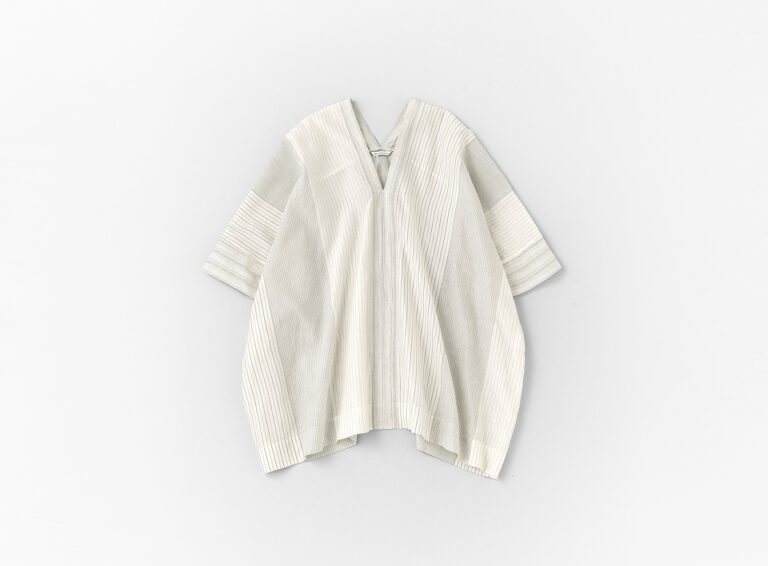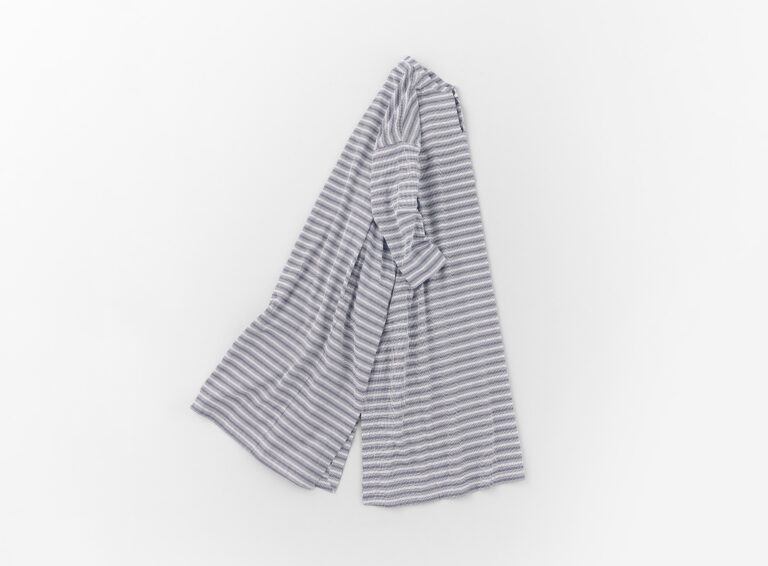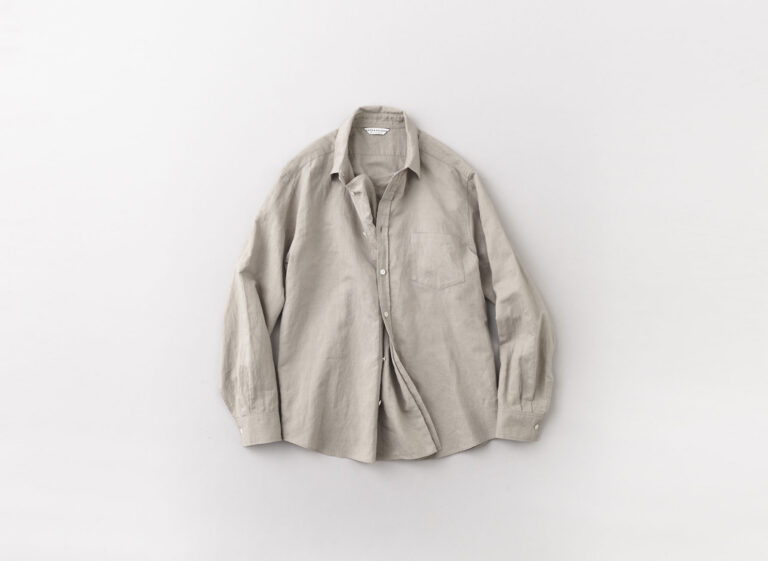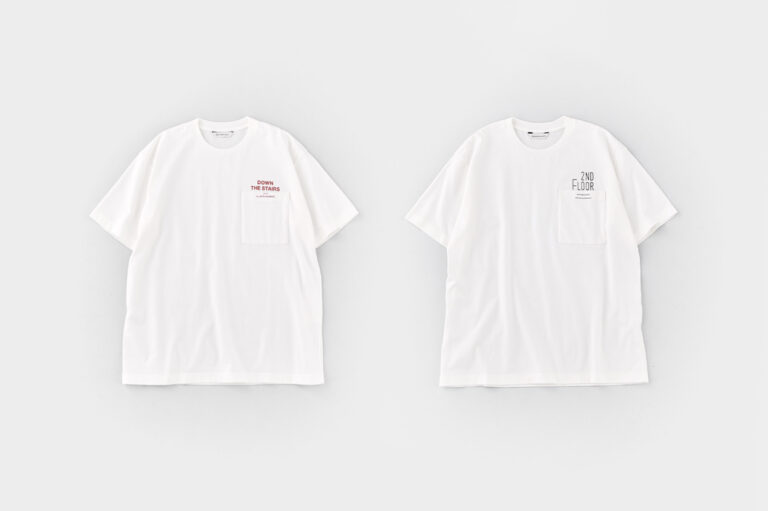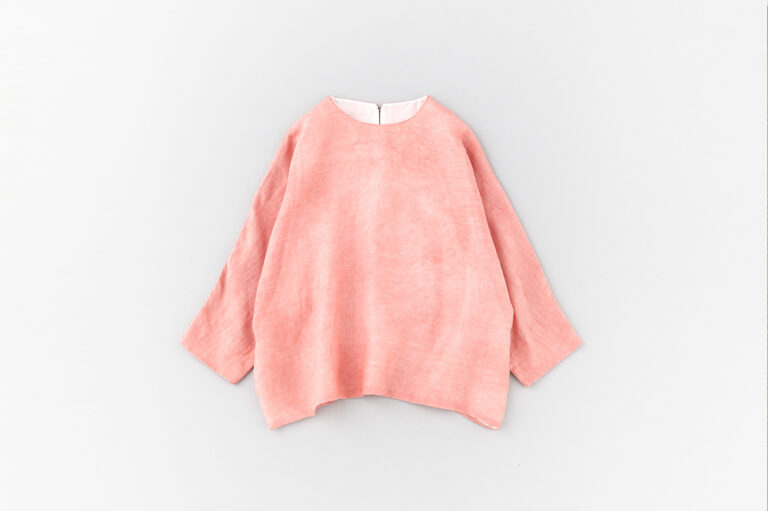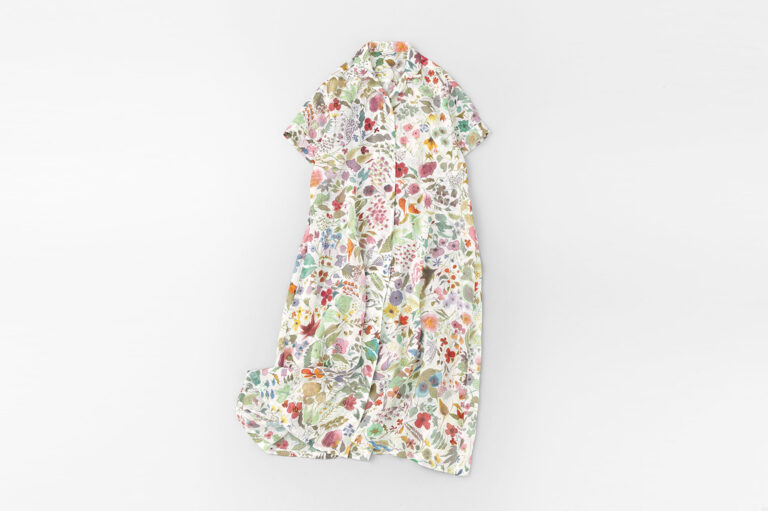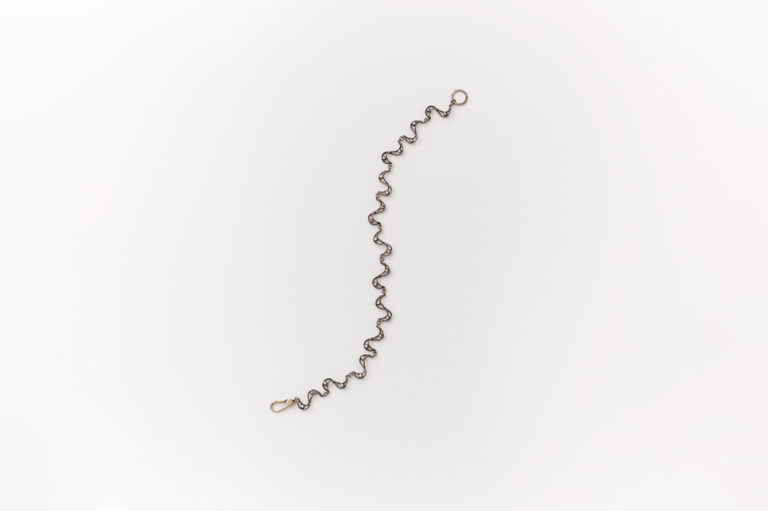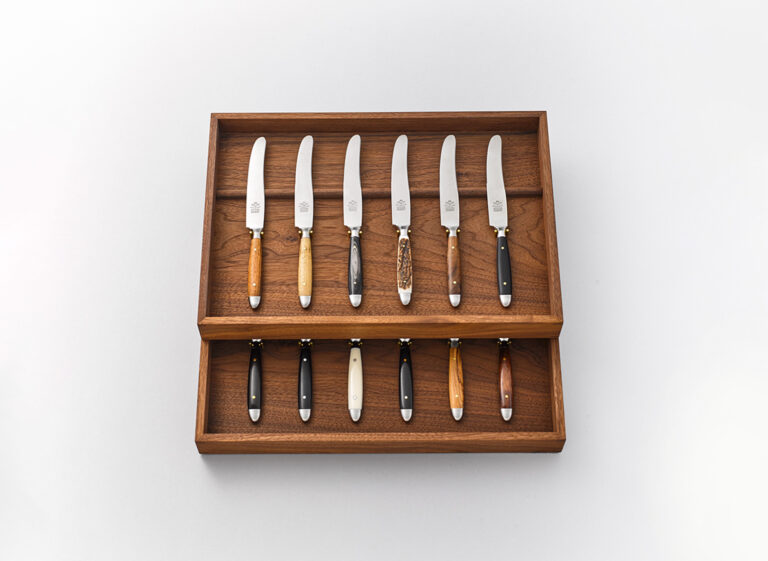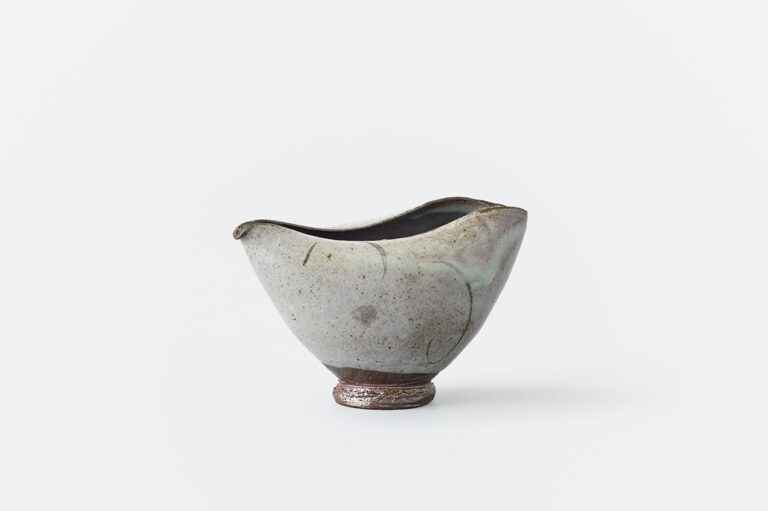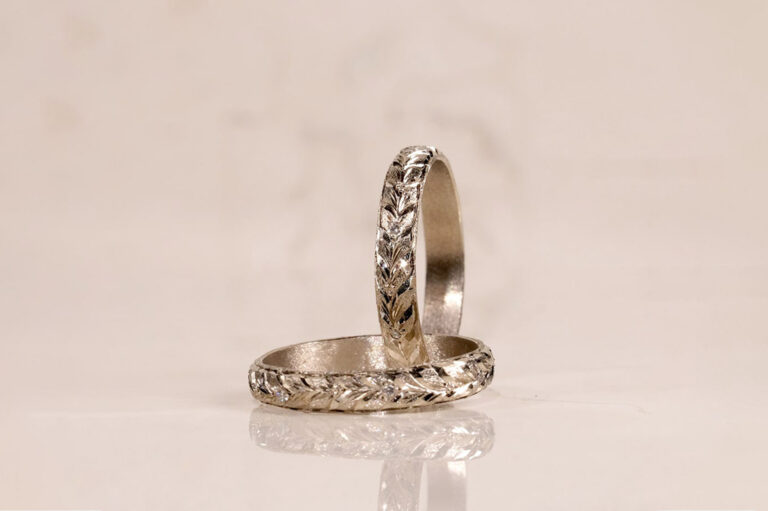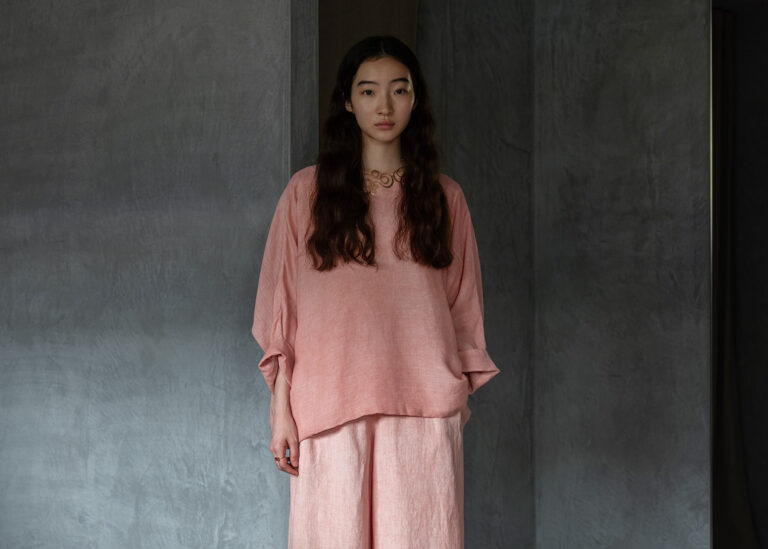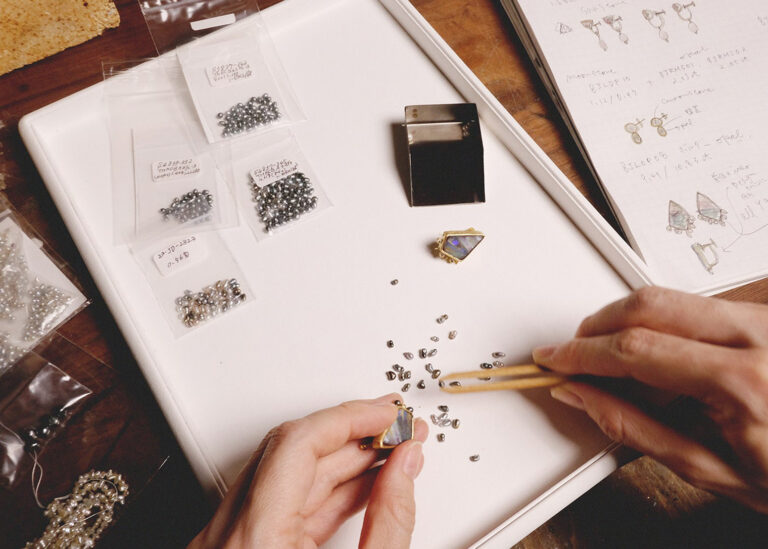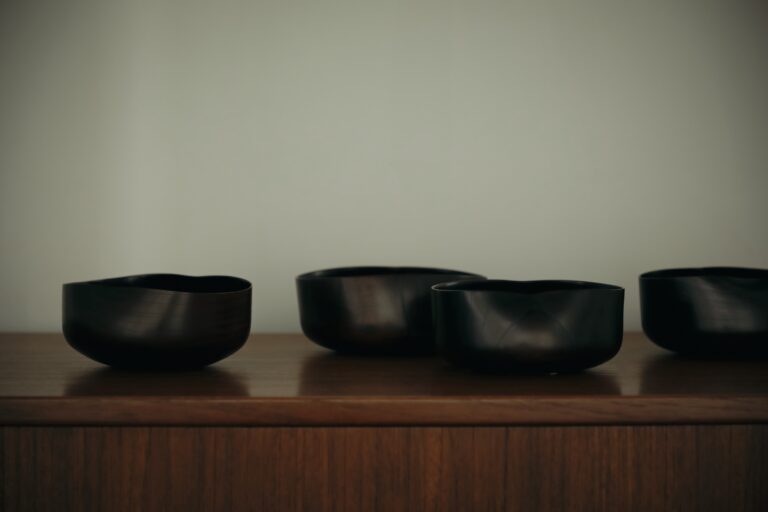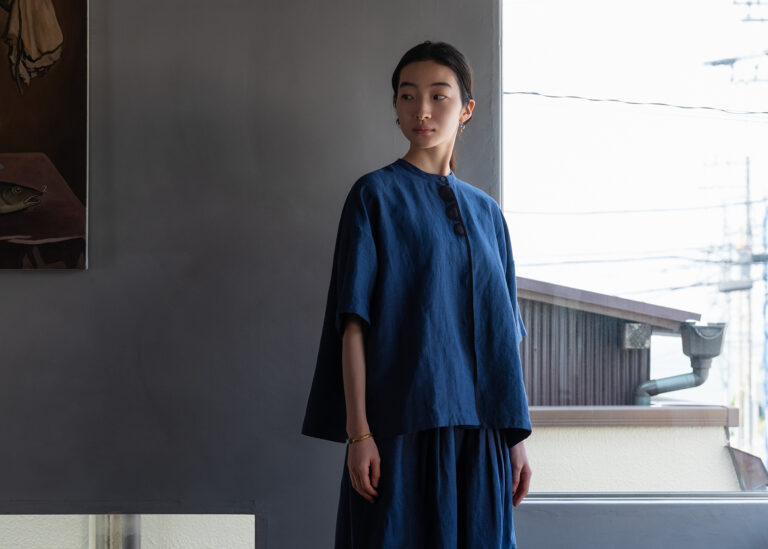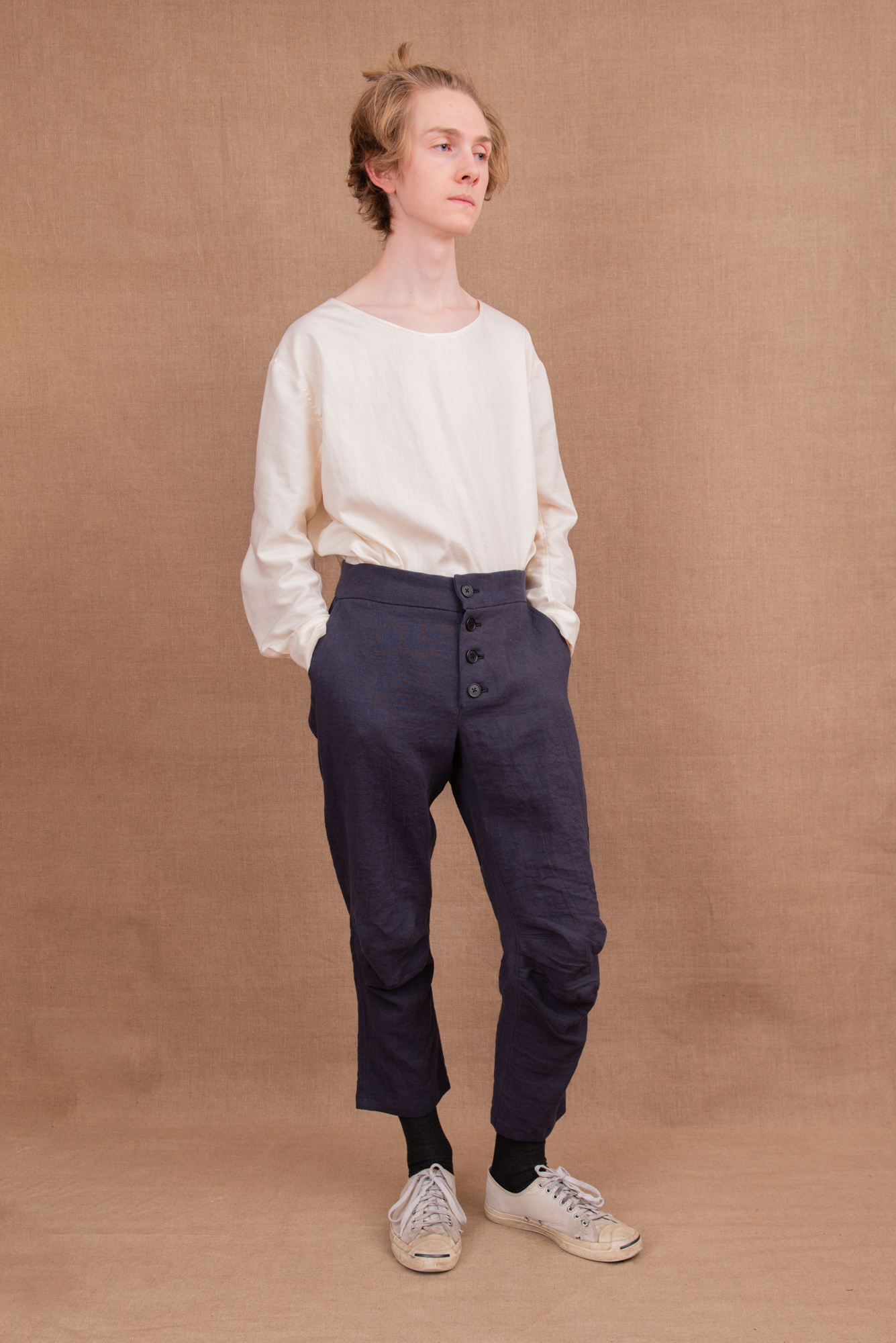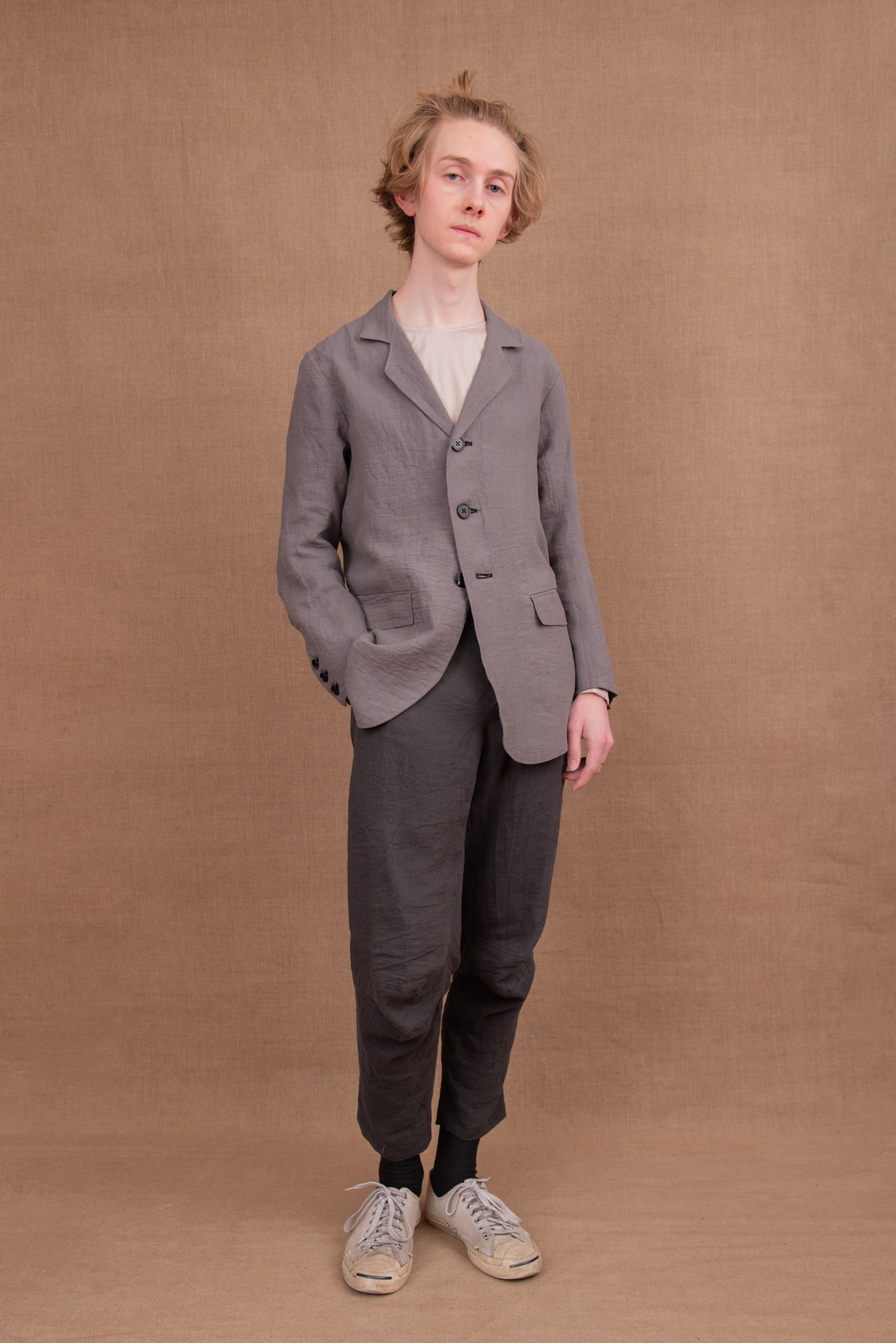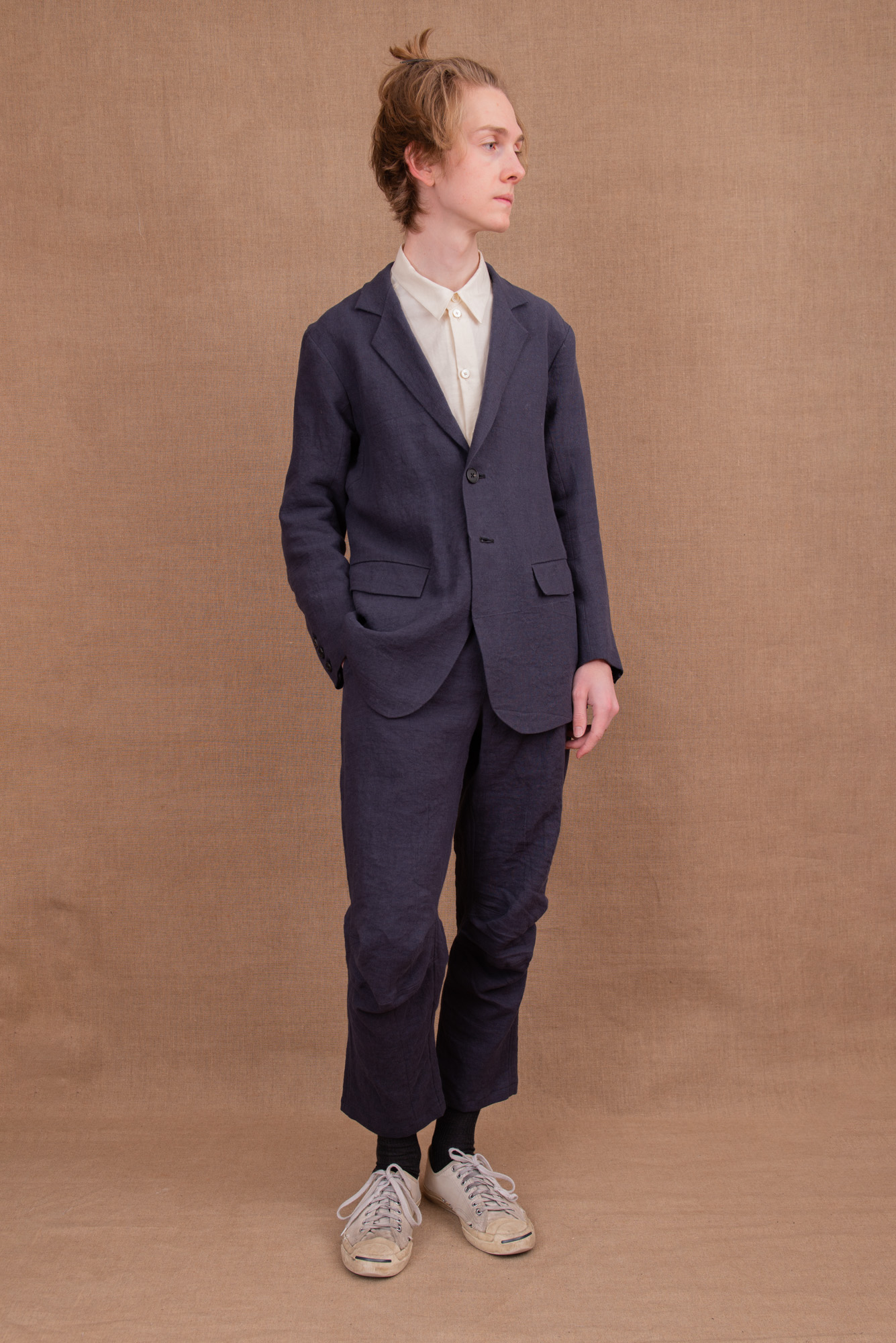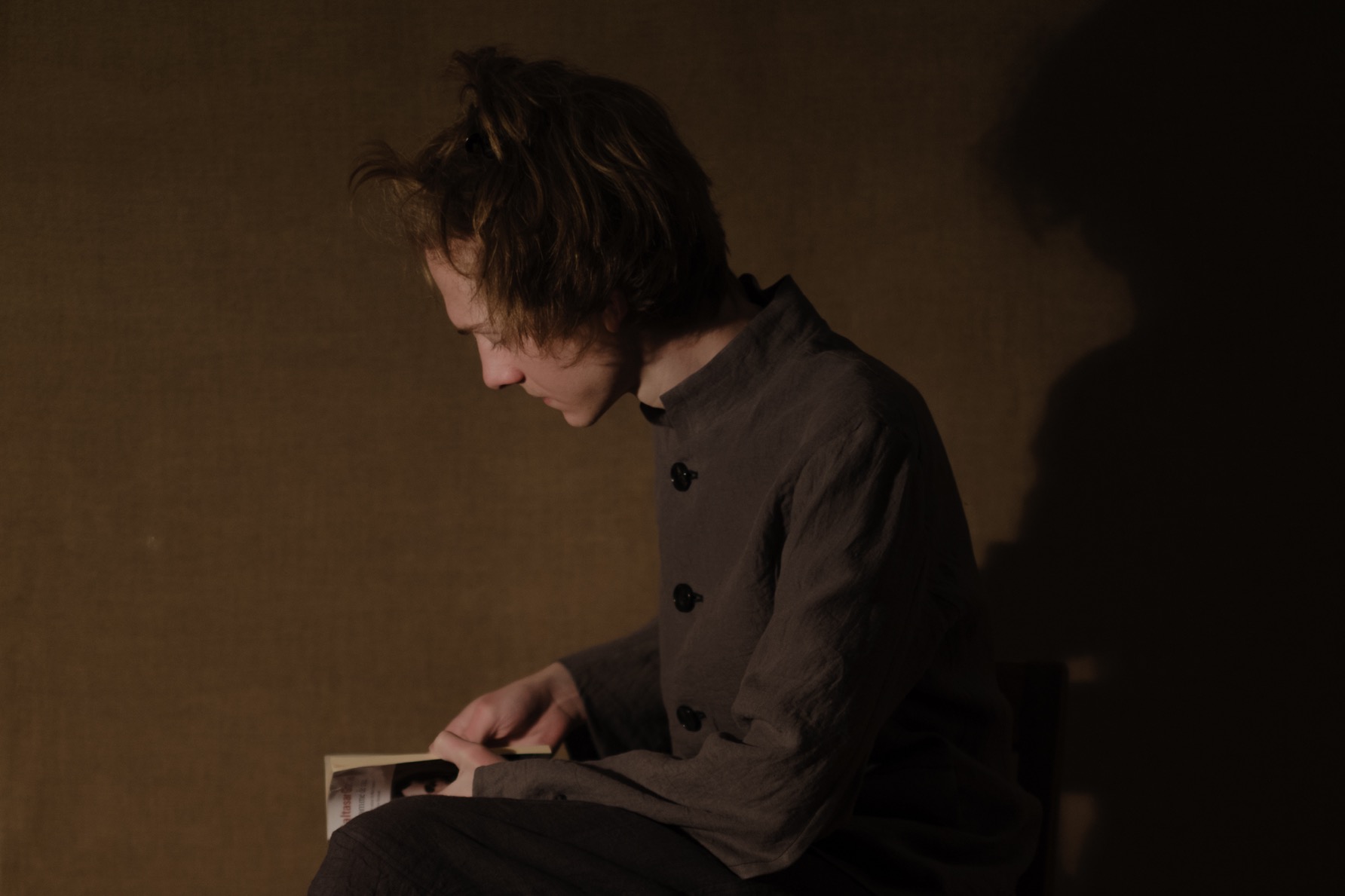
William Owenson is a polymath engaged in various fields including clothesmaking, philosophy, writing, poetry, and figurative painting. In this interview, he shares insights into his upbringing, the journey that led him to work as a clothes-maker in Japan, and his thoughts and feelings about the philosophy and process of creating things.
Please tell us about your childhood. What kind of child were you, what interests did you have and how did your parents influence you?
As a child, I was reserved and introspective, often preferring to contemplate things that caught my attention while quietly observing the world around me. During that time, I found myself questioning societal norms more than I do now, having a strong aversion towards authority and arbitrary rules. I disliked being told what to do, and even if I excelled at tasks assigned to me, I realized early on that deviating from societal norms was not accepted. Consequently, I had little interest in societal systems and found school to be dull. Even as I grew older, I didn’t have many hobbies or interests, often spending time alone, lost in thought or daydreaming.
And I used to absolutely loathe reading. That’s because it felt like something forced upon me. But now, I read every day and find immense joy in being led by wonderful ideas. Books have become a necessity for me. I particularly enjoy older literary works, mostly those written before the 20th century, and mostly French or translated into French from the original language. Stendhal and Balzac are among my favorites.
Also, surprisingly, I very much enjoyed sports. I participated in some small competitions and often went skiing with my family. My parents were keen on encouraging individuality and independence from an early age, never demanding or forcing anything upon me. I was free to live life as I pleased, to make my own choices. However, they also taught me that freedom comes with responsibility and the need to face the consequences of my decisions.
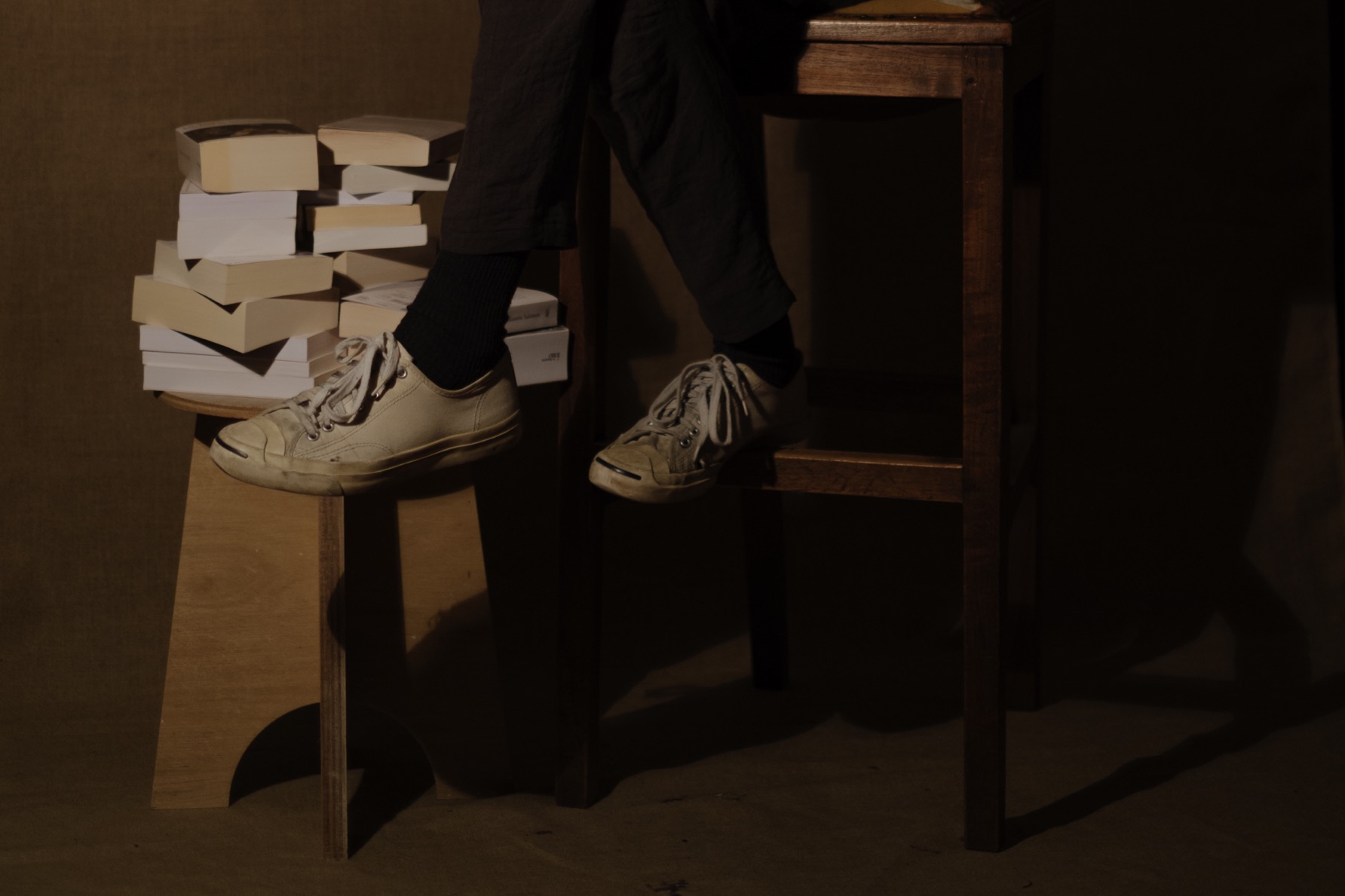
Why did you decide to pursue a career in fashion, what were your interests and studies, and how did you come to work as a designer in Japan?
To be honest, I can’t distinctly recall why I became interested in clothing, but I think it was because I sensed the potential to express my own identity fundamentally. The desire to create my own world led me towards a conceptual approach to fashion design, and after high school, I enrolled in a school to train as a seamster at a couture maison because I wanted to develop my technical skills. While the school emphasized practical aspects of fashion design, I quickly grew dissatisfied with its closed-minded approach and the lack of opportunity to learn what I wanted. As a result, I gradually started learning more through self-study.
Then one day, I stumbled upon an interview with Christopher Nemeth, a British designer who came to Japan in the 1980s, and found myself intrigued. Unfortunately, he had already passed away, but his brand continued, and I learned that his spirit still lived on. Soon after, I sent an email asking, “Could I intern with you?” With no reply, I decided to go to Japan and visit the store in person. Nervously, I introduced myself, and, if my memory serves me correctly, we talked for almost two hours. By the end, I was offered an internship position with them for the remainder of my stay. That period flew by, and I began to feel like there was no other place for me than Tokyo.
Upon returning to Paris, I decided to leave school as I was scheduled to go back to Tokyo for another internship. Life in Tokyo was incredibly enjoyable, and I felt liberated in a way. As the second internship came to an end, it was suggested that I consider studying art in London. Although I hesitated as I had been teaching myself fashion design, I eventually enrolled in Central Saint Martins in London. There, I began to study painting and delved into art history. However, I didn’t quite fit in with the university’s general ideology. They thought I was very eccentric for preferring old and classical forms of art, and not engaging with contemporary subjects. Some teachers even thought that I lived like people in the 19th century, that I did not use any electricity, and that I only painted by candlelight.
In the summer of 2022, I successfully graduated and headed back to Japan. In 2023, I unveiled a series of designs titled “Tonal Arrangements in Philosophical Form” along with a book titled “General Synthesis of Fundamental Insignificance,” which encapsulated all my philosophies. And finally, I mustered the courage to send an invitation to present at Arts & Science!
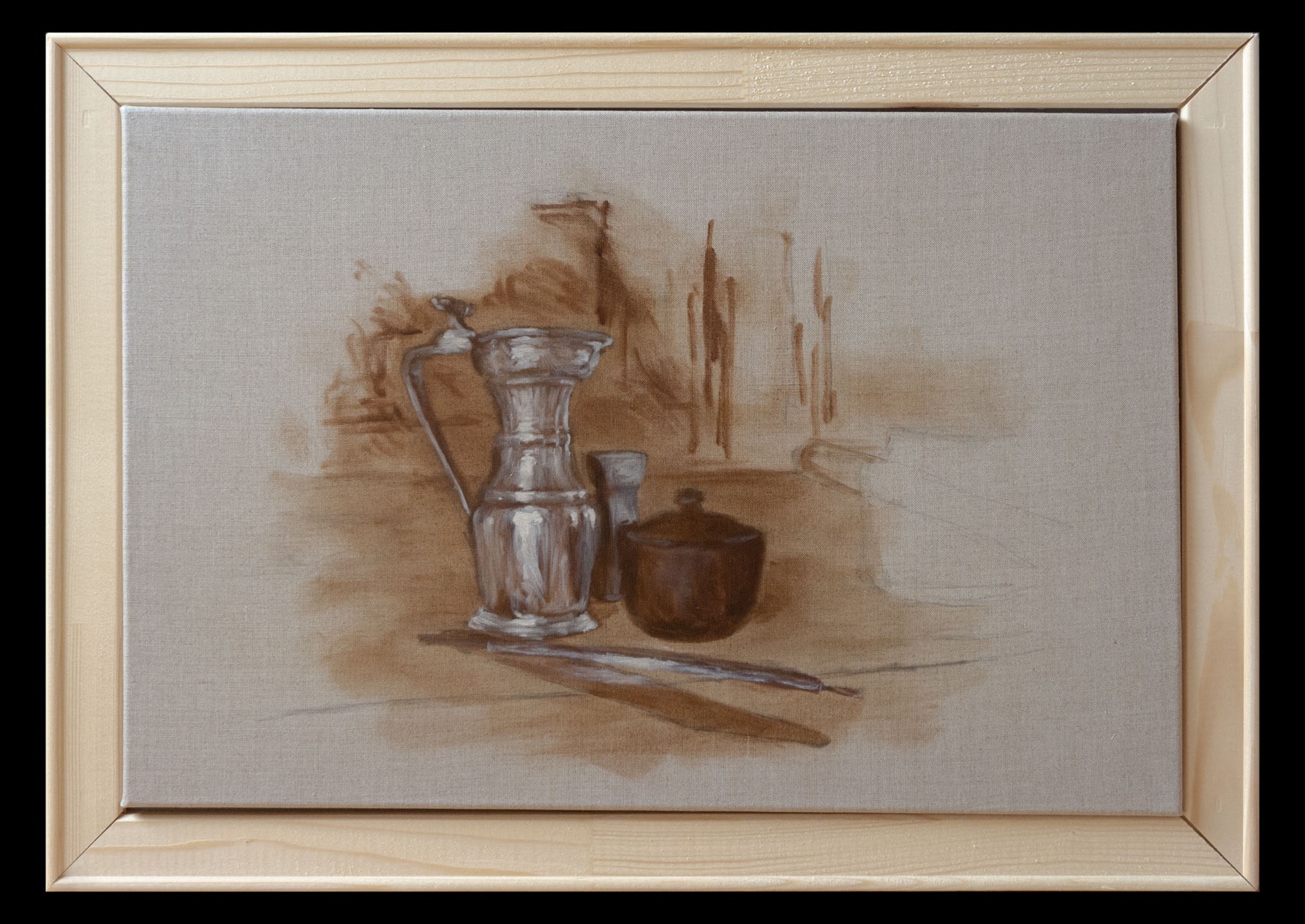
How did you come up with the concept of your brand, and where does your inspiration come from?
To refer to what I do as a brand is something which I still have not really gotten used to yet. I do almost everything myself, from making the patterns and sewing the samples to even crafting the furniture for the showroom. Rather than focusing on fabrics and materials, I prioritize determining specific fits and lines in my designs, and rather than creating something special for a single collection or event, I aim to pursue a more fundamental expression and essence, one not swayed by the fluctuations of fashion trends.
I believe that the clothes and artworks I create should be conceptual. I aim to combine various media such as literature and art to create a system that expresses a certain existential philosophy or worldview. Clothes often have links to or influences from certain books and carry some form of aesthetic expression. From a technical perspective, I find it enjoyable to observe the structures and visual shapes of garments worn before the 20th century, which often influence my work.
Furthermore, I strive to make clothes that are as comfortable as possible to wear. I carefully consider materials, using only natural fibers or those derived from nature, aiming to create clothing that can return to the environment naturally at the end of its lifecycle without causing harm to anyone. For me, designing clothes is fundamentally about designing life itself.
※ Click to enlarge
Please tell us your thoughts about being an artist in Japan. What do you find interesting, and why did you decide to reach out to Arts & Science?
I believe Japan is truly a wonderful country when it comes to making clothes compared to Europe. There are many suppliers who are willing take on small orders, and I feel that the range of possibilities is greater than anywhere else. People also have a very different approach and appreciation for clothes, and there is an acceptance for every form of expression.
Of course, I also notice differences in climate and culture. For example, among the art materials I use, there are some that aren’t suitable for the climate in Japan, such as the adhesive I used to use to give sufficient resistance to the canvas for my paintings, which is very sensitive to humidity, and also special paints using old pigments that aren’t available in Japan and have to be imported. Thus, I need to adapt my artistic activities to my environment. Although there are small inconveniences, I have immeasurable affection for Japanese culture and its refined traditions. When I come into contact with traditional architecture, paintings, poetry, and theater, I sincerely feel that I want to cherish those moments.
To me, Arts & Science is a company that pays great attention to quality and craft, to a certain precision which is nevertheless worked towards a kind of subtlety, a wish for things to be continuously refined until they display a kind of effortlessness. I feel that Arts & Science proposes this better than anyone else, and I am thrilled to be working with the A&S team.
PROFILE
Born in 1997 in Stockholm, Sweden, and brought up in Lausanne, Switzerland, William Oweson is a philosopher, writer, poet, figurative painter and clothes-maker whose work sees itself founded upon late stoic philosophy, yet further refined into a form of courtly detachment, tending towards the creation of an existential aesthetic system. Having studied at the École de la Chambre Syndicale de la Couture Parisienne, graduating from Central Saint Martins in 2022 with a Bachelor in Fine Art, he currently resides in Tokyo, Japan.
- BRAND
William Oweson Förlag
- DELIVERY
February 16th (Friday)
- STORES
- EVENTS
